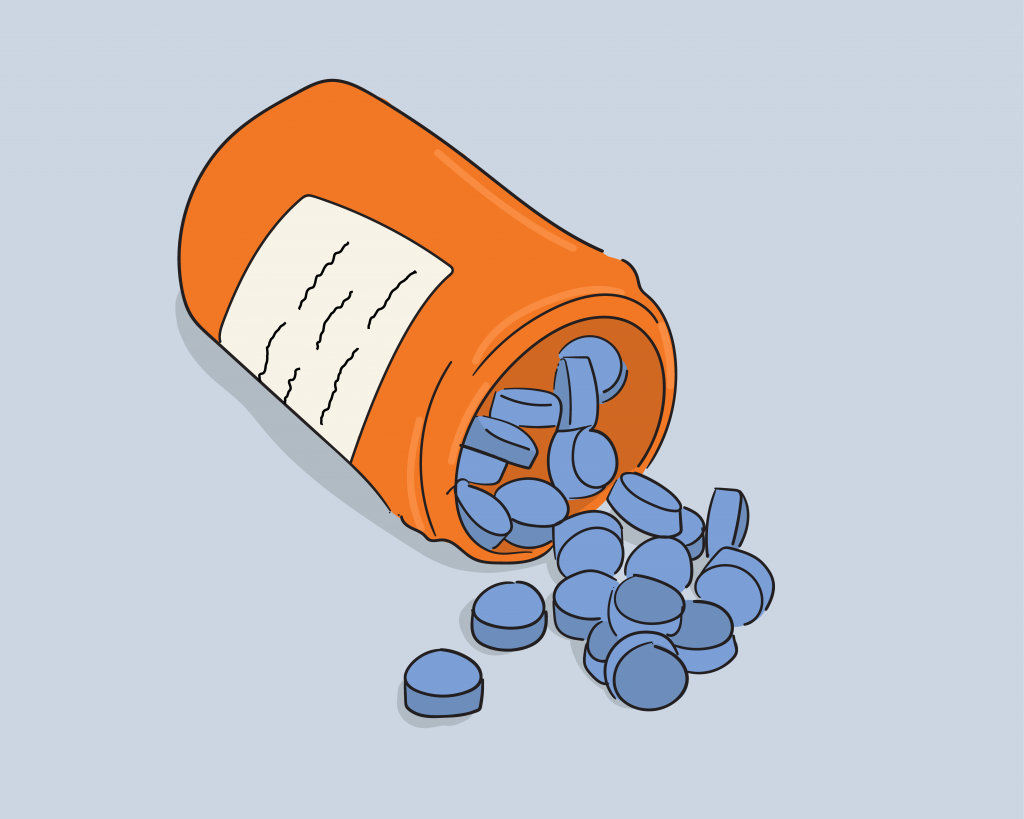Many students are looking to gain an edge in their studies, but a student research team is showing how Adderall is not the answer.
The Binghamton Student Managed Adderall Research Team (B-SMART) is a research group led by Lina Begdache, an assistant professor of health and wellness studies. B-SMART conducts research on the use of Adderall by college students and also seeks to educate students on its side effects. Their research is currently focusing on the link between students’ diets and Adderall use. According to their website, B-SMART is hypothesizing that students who eat unhealthy foods will be more likely to use Adderall because of the crash caused by processed food, simple sugars and the like.
The group was founded in fall 2018 and was inspired by a conversation Begdache had with her students the previous semester about the lack of education on Adderall abuse.
“I am vocal about the impact of Adderall abuse on the young adult brain in my classes,” Begdache wrote in an email. “In spring 2018, after a conversation with the students about the side effects, a student asked me, ‘Why does the school not tell us about these serious side effects since it is a major problem.’ My answer to her was: I am not sure why, but we can make a difference.”
The first study B-SMART completed was mainly focused on Adderall use’s relation to academic performance and mental health. They found students who abuse Adderall tend to have lower grade point averages (GPAs) and suffer adverse mental health effects, such as the inability to concentrate, anxiety and depression. This new project combines Begdache’s expertise as a nutritionist and a biologist concentrating in neuroscience.
Adderall is a Schedule II drug in the United States, meaning it has accepted medical benefits but has the potential for abuse. It can be used to treat attention-deficit/hyperactivity disorder (ADHD). The abuse B-SMART investigates is surrounding Adderall’s use as a “study drug.” B-SMART member Sana Malik, a junior double-majoring in biology and philosophy, politics and law, believes this makes the team’s research especially relevant.
“The illicit use of Adderall as a ‘study drug’ is a prevalent issue across many college campuses,” Malik wrote in an email. “As a college student myself, I understand how the college environment can be stressful and extremely competitive, so it is important to understand why some students turn to ‘study drugs’ and what their effects actually are.”
Abigail Cornelia, a junior double-majoring in English and philosophy, politics and law, discovered B-SMART’s activities through their Instagram page, @bing_bsmart. She feels the group’s work is important to combating certain misconceptions students have about drug use.
“The work B-SMART is doing on campus is very important as misuse and abuse of substances is not just glorified but expected in college as this detrimental behavior is packaged as part of the ‘college experience,’” Cornelia wrote. “B-SMART’s findings that those who misuse Adderall are more likely to have a lower [GPA] than those that do not misuse Adderall and B-SMART’s campaign to promote these findings is just one aspect of the fight against drug abuse.”
B-SMART currently has a Google Forms survey they are using to gather their data. However, this is just one part of what the group does. B-SMART member Dennis Cregin, a junior majoring in integrative neuroscience, explained how they are increasing their social media presence, their preparations for a TED Talk and their presentations during BU’s Research Days. He hopes to present the findings from the new study at a conference this year.
“There is so much misinformation about ADHD medications, and, using evidence from our surveys, we hope to clear the air to give students the opportunity to make an informed decision when they are inevitably offered Adderall,” Cregin wrote in an email.
Devon Umeozor, a sophomore studying integrative neuroscience and a member of B-SMART, echoed Cregin’s sentiment.
“Through our research, I hope we may dispel the misconceptions that exist regarding the misuse of Adderall while also helping to introduce safer, more effective alternatives on college campuses across the country,” Umeozor wrote in an email. “Things such as a good night’s rest, eating energy-sustaining foods and effective time management represent options that are far more effective in their intended goal than using Adderall.”



